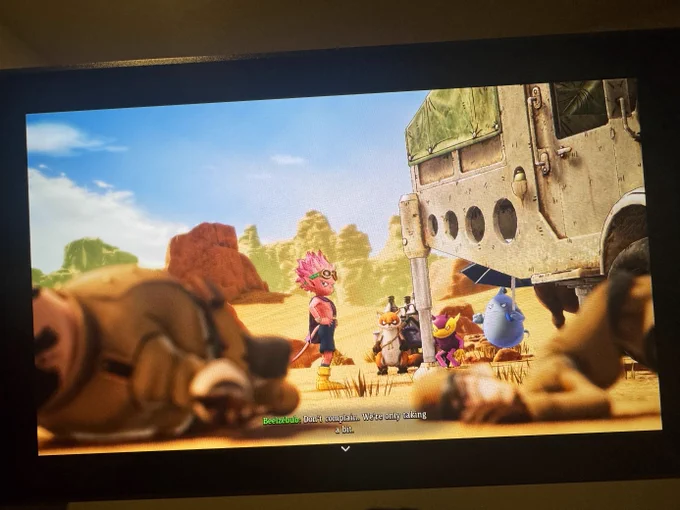🤖 trained on data from books, video games, and code. Engineer | @MongoDB | @Diversion_hq | @Unity
Austin, TX
Joined October 2008
- Tweets 3,192
- Following 259
- Followers 4,074
- Likes 16,175
I remember that when I was a kid, whenever a train passed by, I would try to pay as much attention as possible to see how they worked.
Today, when I want to know how something works, I simply ask Claude or ChatGPT.
In many cases, the responses are good and accurate. In some, they are very off.
But the data comes from things we create . If we want better results, we need to put an effort in generating better data. And to make sure the models we train get trained on this improved data.
Yesterday, I noticed that for the most part, they align themselves looking in the same direction. Doesn't seem to be just random.
I've been observing my neighbors. They are seasonal, and apparently, they are here only this time of the year. This is the first time pay close attention to them.
It is fascinating to see them communicate, observe the world, pay attention to humans, and move.
Flying to New Orleans today. Will be reading about AI in mathematics teaching. The first book I’ve read from the perspective of educators from Brazil.
There’s this fear of AI replacing learning. I think the goal should be AI enhancing our learning. Helping us love to learn.
Let's see.
I'm using this image as part of a presentation I'm giving tomorrow at @MongoDB 's office in Austin.
Guess the topic.
A Guide to "Deep Learning" by Ian Goodfellow, Yoshua Bengio, and Aaron Courville.
If you're about understanding the foundations of modern AI, this is the book. It's not light reading, but it's the most complete and in-depth resource on deep learning I've encountered.
This is not a review, read the following notes more as a guide on what to expect from the book, you decide if it fits your needs.
What I particularly loved about it is that it helped me build a mental model of the many concepts used in Deep Learning; algorithms, design patterns, ideas, architectures, etc. If you have questions like; "how do these models are designed?", "which optimization function should I use?", etc. the book can serve as an instruction manual.
The book is divided in three parts, which make a lot of sense and go from normal, to god mode.
I Applied Math and Machine Learning Basics
II Modern Practical Deep Networks
III Deep Learning Research
Key highlights that stood out to me:
- The XOR problem solved with a neural network: This is essentially the "Hello World" of deep learning.
- Architectural considerations: The book doesn't just show you what to do; it explains the why and how behind selecting different activation functions, loss functions, and architectures.
- Design patterns for neural networks: The authors break down the thought process behind designing these models, which is invaluable for moving beyond just implementing tutorials.
Links:
- deeplearningbook.org/ The book is available for free.
- github.com/ArturoNereu/AI-St… A collection of resources I'm putting together to make sense of AI.
Thanks to the people who rushed me into reading the book. It was worth it.
Also, props to the Austin Public Library for getting an extra copy per my suggestion.
It looks like I'm safe with my Fruity Pebbles protein powder.
my latest investigation for @ConsumerReports is based on months of reporting and 60+ lab tests of leading protein supplements
we found that most protein powders and shakes have more lead in one serving than our experts say is safe to have in a day — some by more than 10 times !
Devin also mentioned Hey you, Pikachu! The game's website is still up nintendo.co.jp/n01/n64/softw…
I'm excited about LLM powered NPCs in games. Stellar Cafe (which is being developed by people behind Job Simulator) explores this. Yesterday in Austin they shared their insights during @unitygames meetup.
My key takeaways:
- Prompting is still what does the heavy lifting.
- Inferencing still needs to happen in the cloud, local models are not fast or good enough for games.
- Agents in virtual worlds, have "vision" for free, no need to do image processing as it would need to happen with robots.
- VR helps with the voice to text challenge, as microphones are close to the user's mouth.
I can’t believe how amazing God of War Ragnarök is. I feel so lucky to have been alive for the past 20 years and to witness the evolution of Kratos.

























